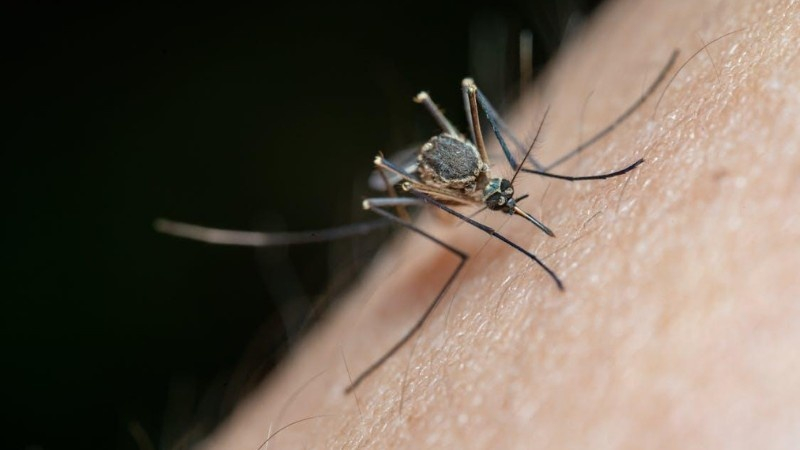For many homeowners, pest problems may seem like minor inconveniences that can be dealt with later. However, ignoring even the smallest sign of pests in your home can lead to a host of significant issues that compromise not only your property but also your health and safety. Pests such as rodents, insects, and bats can create a ripple effect of problems that grow over time, making early detection and management essential.
This article explores the often-overlooked consequences of untreated pest infestations, offering insights into why proactive measures are necessary. Boone Wildlife and Pest Solutions emphasizes the importance of addressing pest problems promptly and effectively to maintain a safe and healthy home environment.
Why Pest Problems Should Never Be Ignored
Many pests can thrive unnoticed in the hidden corners of your home, multiplying rapidly and causing damage that escalates with time. Here are some reasons why ignoring pests is never a good idea:
1. Property Damage
Some pests, like termites and rodents, can cause extensive damage to the structural integrity of your home:
- Termites: Known as silent destroyers, termites consume wood and other cellulose-based materials. They can weaken foundations, walls, and furniture, resulting in costly repairs.
- Rodents: Mice and rats chew through wires, insulation, and drywall, increasing the risk of electrical fires and structural issues.
- Carpenter Ants: These insects hollow out wooden structures to build their nests, which can compromise support beams and other critical elements.
2. Health Risks
Pests are more than just a nuisance; they pose serious health risks to humans and pets:
- Disease Transmission: Rodents carry diseases such as hantavirus, leptospirosis, and salmonella, which can spread through their droppings and urine.
- Allergic Reactions: Cockroach droppings and shed skin can trigger allergies and asthma, particularly in children.
- Parasites: Pests like fleas and ticks, often carried by rodents or bats, can transfer diseases like Lyme disease to humans and animals.
- Histoplasmosis: Bat guano can harbor fungal spores that cause this respiratory illness, posing risks to anyone exposed.
3. Contamination
Pests often invade areas where food is stored or prepared, leading to contamination that can cause foodborne illnesses:
- Rodents and insects can infiltrate pantries and storage areas, leaving behind droppings, saliva, and urine.
- Stored grains, cereals, and pet food are particularly vulnerable to pest contamination, making them unsafe for consumption.
4. Pest Infestation Growth
Pests reproduce rapidly, and a small problem can quickly escalate into a full-blown infestation if left unaddressed. For example:
- A single mouse can produce up to 60 offspring in a year.
- Cockroaches can lay up to 50 eggs at a time, leading to exponential population growth.
- Termite colonies can number in the hundreds of thousands, making early intervention critical.
The Costs of Delayed Pest Control
Many homeowners delay pest control in hopes that the problem will resolve itself, but this approach often results in higher costs down the line:
- Structural Repairs: Damage caused by termites, carpenter ants, and rodents can require expensive renovations.
- Medical Expenses: Treating illnesses caused by pest exposure, such as respiratory conditions or food poisoning, can be costly.
- Pest Extermination: Larger infestations are harder and more expensive to eradicate than smaller ones caught early.
Boone Wildlife and Pest Solutions emphasizes that investing in proactive pest management saves money and protects your home in the long term.
Common Pests and Their Long-Term Impacts
Different pests bring unique challenges to homes. Understanding their behavior and potential harm can help homeowners take action before it’s too late:
Termites
- Silent and destructive, termites can work undetected for years.
- They cause billions of dollars in damage annually, making them one of the most costly pests.
Rodents
- Mice and rats can gnaw through electrical wiring, increasing fire risks.
- They contaminate food supplies and spread diseases, putting household members at risk.
Cockroaches
- Roaches thrive in damp and dark places, making kitchens and bathrooms prime targets.
- Their presence contributes to allergies and the spread of bacteria like E. coli and salmonella.
Bats
- While essential to the ecosystem, bats in your home can pose serious risks.
- Bat guano can accumulate and lead to structural damage and health issues like histoplasmosis.
How to Identify Pest Problems Early
Early detection is key to preventing the escalation of pest issues. Watch for these signs:
- Droppings: Small, dark droppings near food, in cabinets, or along walls.
- Noise: Scratching, squeaking, or fluttering sounds from walls, ceilings, or attics.
- Odors: Strong, unpleasant smells, such as ammonia from rodent urine.
- Damage: Gnaw marks on wires, chewed packaging, or wood damage.
- Pest Sightings: Seeing live pests, especially during the day, is often a sign of a larger problem.
Effective Strategies for Managing Pests
Preventing and managing pest problems requires a combination of proactive measures and professional expertise. Here’s what homeowners can do:
1. Maintain a Clean Environment
- Remove food crumbs and spills promptly.
- Store food in sealed containers.
- Dispose of garbage regularly and use bins with tight-fitting lids.
2. Eliminate Entry Points
- Seal cracks and gaps in walls, doors, and windows.
- Install weatherstripping and door sweeps.
- Use mesh screens on vents and chimneys.
3. Manage Moisture
- Fix leaky pipes and faucets to reduce water sources for pests.
- Ensure proper drainage around the home’s foundation.
- Use a dehumidifier in damp areas like basements.
4. Schedule Regular Inspections
- Periodic inspections by pest control professionals can identify potential problems early.
Professional Pest Control: A Worthwhile Investment
While DIY measures can be effective for minor issues, professional pest control is often necessary for comprehensive solutions. Boone Wildlife and Pest Solutions provides tailored pest management services designed to address specific needs and prevent future infestations. Their expertise ensures:
- Safe and effective removal of pests.
- Identification and sealing of entry points to prevent re-entry.
- Environmentally friendly methods that minimize harm to non-target species.
Long-Term Pest Prevention Tips
Once pests are removed, maintaining a pest-free home requires consistent effort:
- Regular Maintenance: Inspect your home’s exterior for new cracks or gaps.
- Landscaping Care: Trim bushes and trees to reduce pest harborage near your home.
- Proper Storage: Keep firewood and other materials away from the house.
- Education: Teach family members about pest prevention to ensure collective vigilance.
The Role of Boone Wildlife and Pest Solutions
Boone Wildlife and Pest Solutions understands the unique challenges pests pose to homeowners. By addressing problems at their root and providing preventative measures, they help homeowners avoid the hidden risks of untreated infestations. Their commitment to humane and effective pest control ensures both the safety of your home and the preservation of the local ecosystem.
Conclusion
Ignoring pest problems may seem inconsequential at first, but the long-term consequences can be severe. From structural damage to health risks, pests bring a range of hidden dangers that can escalate if left unchecked. By taking proactive steps and seeking professional help when needed, homeowners can protect their homes and loved ones from these threats. Boone Wildlife and Pest Solutions encourages homeowners to stay vigilant and address pest issues promptly, ensuring a safe and pest-free living environment.


